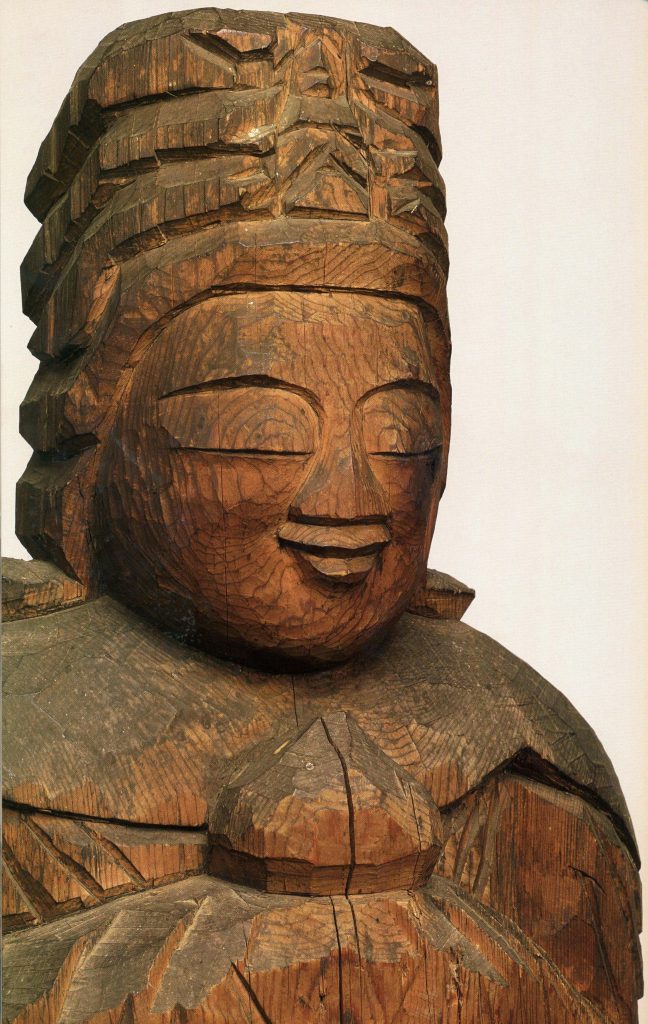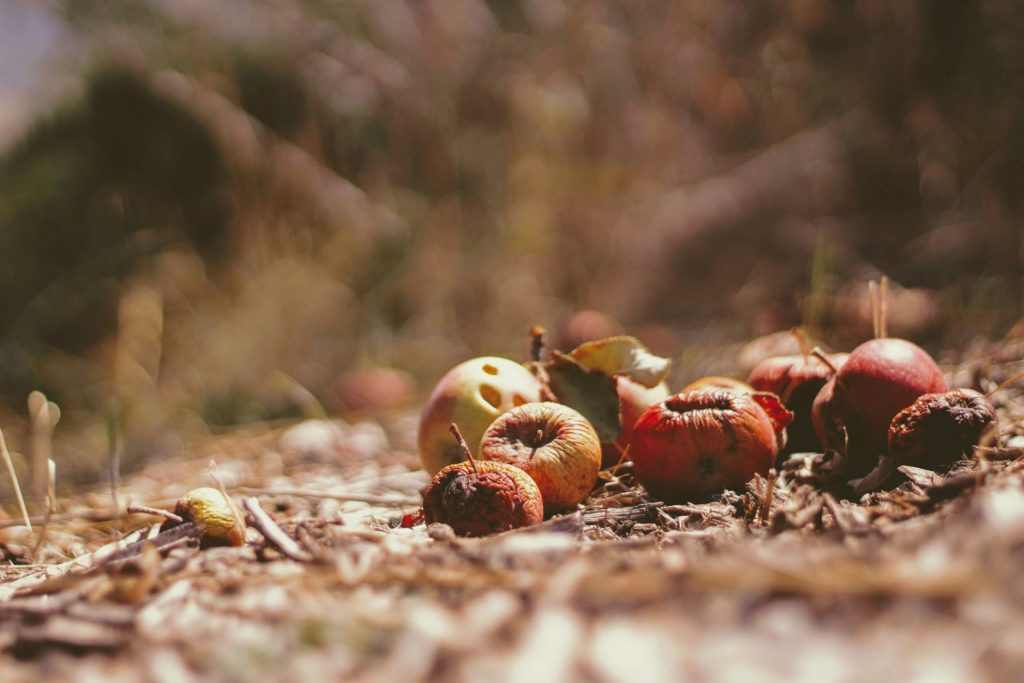Vow of 120,000 Actions
Imagine being a child on the riverbank, the waters rising so rapidly, above the banks, spreading out in every direction that there is nowhere to run. In a moment you cannot stop, your mother collapses with the current, arms flailing to keep afloat, to keep from being carried off. You can’t reach her, as the flood overwhelms her body—and she’s gone.
This is the lasting image that informed the life of Enku, a Buddhist monk living in the 17th century. His mother, like many of the inhabitants of Kisogawa, Japan, had left behind many orphaned children and a township in ruin. As a result, Enku’s path was chosen for him and he entered a monastery. Once older, and time to venture from the safety of the temple, Enku, like many monks, dedicated his life to ending the suffering of others. On the anniversary of his mother’s death, this traveling monk returned to the river of his childhood and made a vow of 120,000 actions.
A Vow to Last a Lifetime
 During his travels, as a form of mediation and prayer, Enku had begun carving crude wooden statues of the Buddha and leaving them with the people he’d encountered—farmers, artisans, children, the poor, homeless, and sick. Each Buddha carving held a particular feature, that of a ‘faint, gentle smile.’ This was Enku’s signature, the teaching he’d lived, experienced, and now passed on, through the statues, which was the understanding of the power of a smile to ease the suffering of others.
During his travels, as a form of mediation and prayer, Enku had begun carving crude wooden statues of the Buddha and leaving them with the people he’d encountered—farmers, artisans, children, the poor, homeless, and sick. Each Buddha carving held a particular feature, that of a ‘faint, gentle smile.’ This was Enku’s signature, the teaching he’d lived, experienced, and now passed on, through the statues, which was the understanding of the power of a smile to ease the suffering of others.
Coming full-circle, Enku returned to the riverbank of his childhood, and vowed to make 120,000 wooden carvings—a vow of a lifetime. No matter where he walked, he could find pieces of wood to work with. Often, if someone gifted him food, he was able to repay the favor by gifting a statue. If a child was sick, Enku would sit at their bedside, carving and meditating for the child and family. The historic record holds evidence that those who received the statues treated them as treasures, often noting they felt uplifted, proof of the energetic imprint Enku had left in the making of each one, like goodness, kindness, and love.
What it means to make a vow
A vow of 120,000 actions offers the modern person the opportunity to consider how they conduct their own lives. When and how are we committing to a single, unfaltering action—and one solely to serve others? We can infer by the very high number, that Enku had determined he would commit his entire life to making these statues. To grasp the amount, we can break the figure down, like this:
5 carvings a day x 1 year (365 days) = 1825
1825 carvings x 65.75 years = 120,000O
Or…10 carvings x 1 year (365 days) = 3650 carvings
3650 carvings x 32.8 years = 120,000 carvings
If at the time Enku made his vow he was anywhere from 25-35 years old, he may have viewed it as an unattainable goal, or not necessarily with the outcome of ever completing the task—but rather, in contrast, something he would act upon relentlessly, not necessarily through striving, but an active-will to serve others: when one was completed, he went on to the next, as one long infinite action. I imagine he didn’t actually count or keep track of his creations, but rather, worked without ceasing, a single-pointed focus on the present task and moment.
The vow becomes the teacher
When we make a vow, no matter the intention behind it, we’re doing so with the full strength of our will, rather than being half-hearted. In Sun Tzu’s Art of War, he explains that when a student on the path of self-wisdom makes a commitment (or vow) in earnest, they won’t need to resupply their passion (or the “weapons of war”in order to fulfill it (See Hidden Warrior, chapter 2). Even if we feel like we’ve failed, because we made our commitment in earnest, we can continue on in earnest. The more we honor the vow, the more we breakdown our own illusions and perceptions of difficultly, hardship, and suffering.
In theory, the amount of statues Enku carved wasn’t so much the point or focus, but the way he conducted himself each day when he met his practice to create them. If you have ever undertaken a goal—long or short term—you know that circumstances arise in and around it, creating imbalances within.
Our ability to persevere, to ‘wage war’ as Sun Tzu would say, to defeat the setbacks, grants us knowledge, which in turn transcends into inner peace, harmony, and a gentle perfection to everything we do.
The flood of thoughts
Every day, with or without a formal, lifetime goal, we’re being asked to consider the way we conduct ourselves in the service of others, with the hope of ending our own suffering, which then naturally permeates to also ending the suffering of others. If we were to consider a single action completed 120,000 times over the course of a lifetime, we might immediately feel burdened to arrange time to do it.
For instance, as a writer, I conceived committing to writing 120,000 short stories for others, then shortened it to crafting haikus, believing it to be more manageable. Worry arose as I imagined trying to arrange my day to accommodate writing at least ten haikus! This manipulation was like a virus in the mind—a raging flood—creating a duality of failure and success. Questions about the rules of the vow took over, like what would happen if I forgot one day, or what if life-circumstances made it impossible to write for weeks, would that mean I’d get behind or wasn’t serious enough?
As I asked and answered the thoughts arising, it allowed me to see the limitation that can perpetuate and manifest as soon as we make a vow. This is the ‘suffering’ that Enku understood and vowed to ‘root out,’ or battle. His vow was the determination to surrender control, not only to outcome, but the pursuit of suffering, which arises the moment we no longer trust that all is perfect and unfolding right now.
Daily vows for a lifetime
When I look around, I see the many vows I’ve made daily throughout my life. Like Enku, I suffered my own ‘flood,’ one that altered my path similarly, putting me on the road to an ascetic life and without formality, my choices once the waters receded, so to speak, created a seamless vow towards ending my suffering in the world.
Vows of 120,000 actions are available to us in each moment. It can be a daily vow of lighting incense in the morning and night. It might be 120,000 smiles, putting into practice Enku’s teaching that a faint, gentle smile can alleviate the suffering of others, especially in times of most need. We might cook 120,000 meals for others, or bow 120,000 times in front of a flower or tree giving thanks, or ring a bell 120,000 times to signal the present moment. We might even offer 120,000 thank-yous to everyone we meet.
As soon as we make the vow, we relinquish our need to know, to do, to forecast, but can rest inwardly, and with our own faint, gentle smile, unfold and become the next moment.







A reader’s response to “Our Body, the Earth:”
The Earth body in all its forms and expressions and the human body are interconnected and co-creative. It is the human mind that has separated the two. At this time of crisis in the evolution of life, all bodies are and everybody is being purged of the mental-emotional contraction of the separated self, born of Homo Sapiens. This purging is at once a death, a transformation and a rebirth. There is no avoiding, resisting or denying its pain. These reactions are the essence of separation. The only action is love, the embrace of the moment, no matter how painful or insignificant the moment may seem. no matter if no one but yourself is aware of that embrace. This body of ours will feel it. The rebirth, whatever and whenever that may be, will express it. The embrace and the love of all, that is our contribution, our redemption and our destiny. P.B.